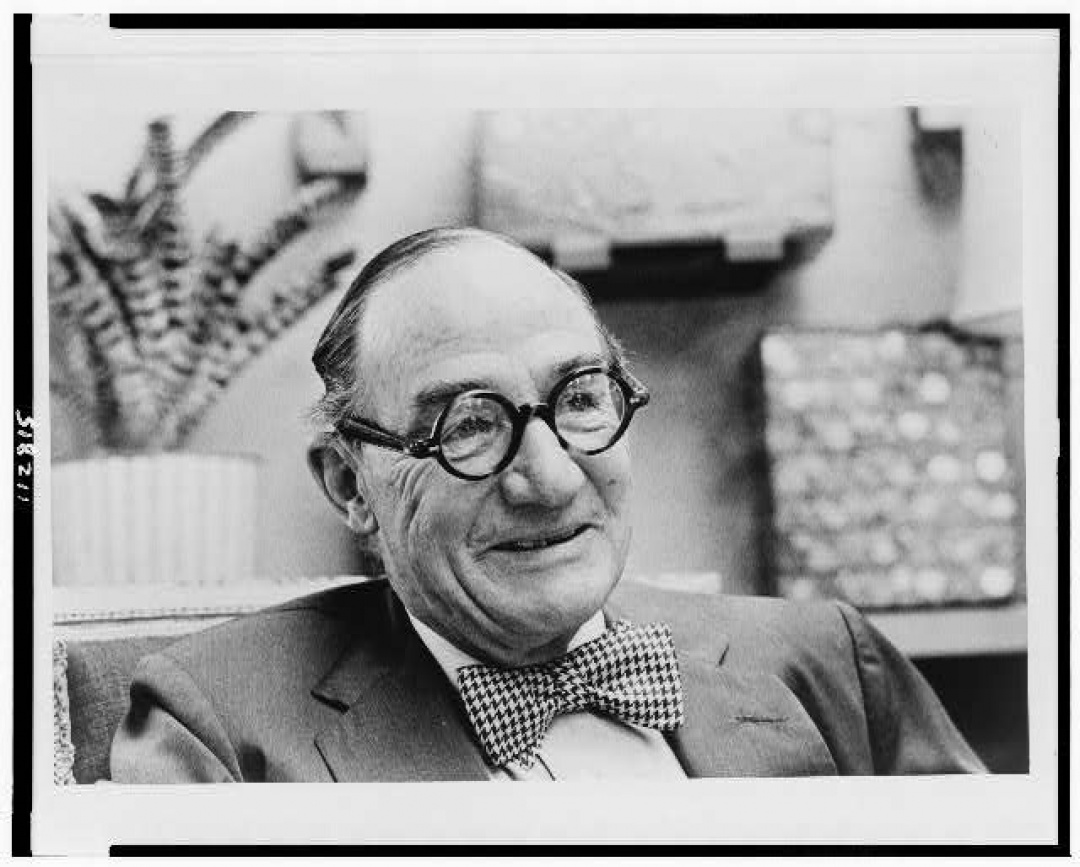Yesterday I reviewed The Columnist, David Auburn’s new play about Joseph Alsop. In today’s Wall Street Journal “Sightings” column, I fill in some of the blanks about Alsop, who is no longer well known. Here’s an excerpt.
* * *
Nobody remembers Joseph Alsop now, but in his day he was as famous as a journalist could be. A white-shoe-leather political columnist who went from Groton to Harvard to the New York Herald Tribune in three easy steps, he spent the whole of his life rubbing elbows with powerful pols whom he flattered assiduously, then wrote about in his widely read newspaper column. He was also a closeted homosexual who mistakenly supposed that no one knew of his after-hours inclinations. In fact, Alsop’s friends were well aware that he was gay–and so were his enemies.
 David Auburn’s “The Columnist,” which opened on Broadway this week, hinges on something that happened to Alsop when he visited Moscow in 1957, at the height of the Cold War. It seems that he picked up a young man at a party and spent the night with him, not knowing that the fellow in question was a KGB operative and that he had inadvertently stumbled into what is known to intelligence agents as a “honey trap.” Alsop and his companion were secretly photographed having sex, and the next day the columnist was informed that if he didn’t agree to serve as an “agent of influence” for the Soviet Union after returning to America, he would be exposed as a homosexual, thrown in jail and left to rot….
David Auburn’s “The Columnist,” which opened on Broadway this week, hinges on something that happened to Alsop when he visited Moscow in 1957, at the height of the Cold War. It seems that he picked up a young man at a party and spent the night with him, not knowing that the fellow in question was a KGB operative and that he had inadvertently stumbled into what is known to intelligence agents as a “honey trap.” Alsop and his companion were secretly photographed having sex, and the next day the columnist was informed that if he didn’t agree to serve as an “agent of influence” for the Soviet Union after returning to America, he would be exposed as a homosexual, thrown in jail and left to rot….
That is, needless to say, quite a tale, and it’s easy to see why Mr. Auburn thought that it would make a rattling good play. But unless you know the history of American political journalism, certain parts of “The Columnist” may be a bit confusing, especially since it’s likely to leave uninformed viewers with the impression that Alsop, who was a staunch supporter of U.S. involvement in the Vietnam War, was a conservative. He was, in fact, a liberal anti-Communist, an FDR-loving New Deal Democrat who was violently opposed to both Joe McCarthy and the Soviet Union….
In addition, I suspect that many of those who see Mr. Auburn’s play will find it understandably hard to believe that a mere newspaper columnist could possibly have wielded the power that Alsop is portrayed as having in “The Columnist.” Today’s columnists derive such influence as they may have not from their writing but from their television appearances, which are the real source of their fame. A columnist who isn’t seen regularly on TV might as well be talking to himself. But in Joe Alsop’s day, it was perfectly possible for an op-ed columnist to win fame solely on the strength of what he wrote….
* * *
Read the whole thing here.
Terry Teachout on the arts in New York City
An ArtsJournal Blog
